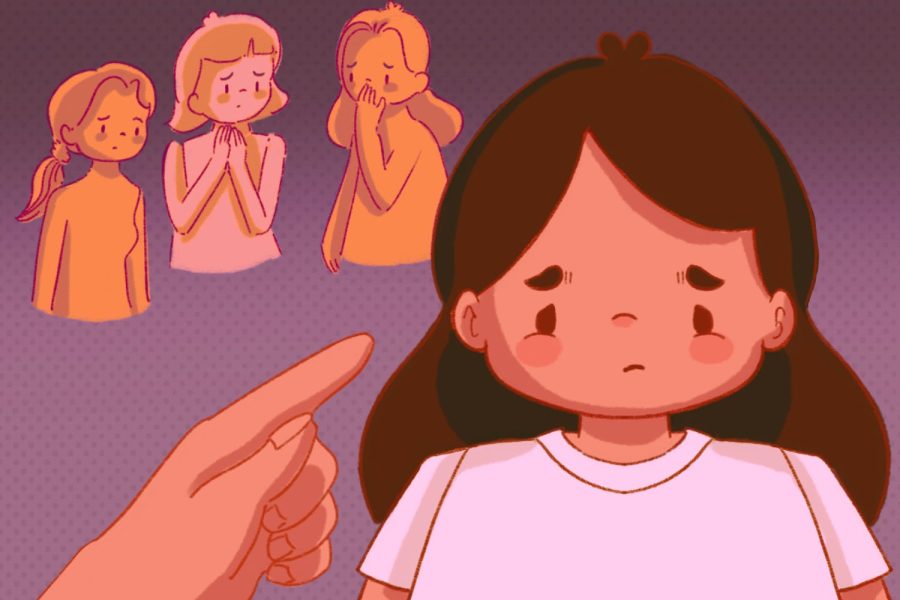The psychological side of parenting
Excessively-strict parents cause long-term issues in the minds of teens
Photo Courtesy of Creative Commons
As a result of strict parenting, teens can become severely insecure, anti-social, and emotionally unstable.
November 1, 2022
As a child, all you ever want is to grow up. Growing up becomes the most exhilarating part of your life as you finally get to figure out who and what you want to become. After years of waiting and imagining what it’s like to be older, those four “best years of your life” finally roll around–high school. However, you come to find out that your teens years aren’t as luxurious as everyone had made them out to be. Work gets harder, days get longer, and stress becomes that much more intense. To make it even worse you have Mom over one shoulder and Dad over the other, watching and controlling every sudden move you take. Whether it’s school work or your social life, your parents are there to contradict each little aspect of it.
Even though keeping close watch over teens is one of the most important tasks a parental figure has, excessive and overly-protective parenting only up brings countless negative effects to the mental health and overall socializing skills of teens. Not only does strict parenting restrict teens from having fun during these years of minimal responsibility, it also causes emotional damage and can send them down the wrong path later on.
It seems logical to think that strict parenting teaches teens discipline and helps them be successful in the future. Still, there are numerous other ways to ensure they display proper behavior and achieve their goals other than stern helicopter-parenting. Some think that being strict will lead to success in the future; however, strict parenting does not equal success. Success is earned, not taught.
Teen years are supposed to be all about fun. It’s the time to let loose, make friends and truly find yourself through certain decisions you make and the consequences that come along with them. A big part of evolving through this pre-adult stage is having freedom and integrity, but helicopter parenting can greatly deprive teens of both of these and limit the learning experiences they undergo.
Rather recently, children are required to install tracking apps, such as Life 360, onto their phones from the moment they get a device until they are full grown, responsible adults. Parents think that these apps are a way to monitor their kids’ lives and “keep them safe and out of trouble.” But is that truly what these apps are doing? Really the only difference between an iPhone and an ankle bracelet is that one is in your pocket.
Keeping constant tabs on children can make them feel trapped, like they’re always being watched. Good parenting is showing kids from a young age that they are trusted and have the freedom and responsibility to keep themselves safe and out of risky situations. Someday, these kids are going to end up in the adult-world and they’re going to need to use decision making skills they learned as a teen to help them along the way. Through this, showing a sense of understanding and assurance helps to encourage teens to make good decisions while still having fun. Strict parenting isn’t good parenting; good parenting is providing trust and having a considerate mindset.
This type of parenting has also been known to have a serious effect on the mental health of teens and cause significant emotional damage. Research has shown that children with helicopter parents may be less able to deal with the challenging demands of growing up, especially with navigating the complex school environment. Teens and young kids need parents who are going to be sensitive and delicate towards their wants and needs. Without this, kids grow up thinking that they have no control over their own lives and develop the inability to handle tough situations on their own. A source of guidance is needed for kids to grow up both mentally and physically healthy.
Being able to manage your behavior and feelings is one of the most beneficial things you learn as you grow, but overly-controlling parents limit these factors and restrict full emotional development.
Helicopter-parenting affects children mentally and can easily send them down the wrong path. When parents try to control their child’s social life, it simply makes them more likely to act out. This comes to show that strict parenting can cause teenagers to “rebel” or participate in risky activities, therefore aggravating aggression and delinquency as they continue to grow.
Helicopter parenting has been on the rise in recent generations and has taken a major toll on the lives of teens. Parenting like this cuts down on the fun they’re supposed to be having, damages their mental health, and can greatly influence poor behaviors. Teens deserve a little bit of freedom in their lives and the chance to build integrity to prepare them for their future. Without this, psychological issues will continue to persist in the youth of generations to come.







